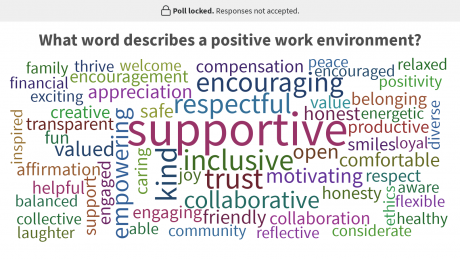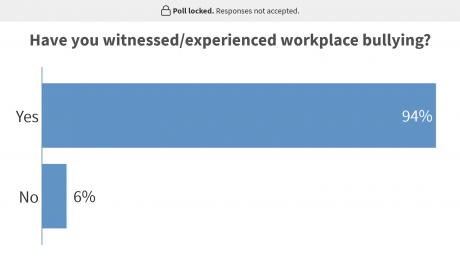This series of three workshops is intended for leaders (executive managers, deans, directors, chairs, and supervisors, level 12-17) from across the University to work together to improve the current climate and culture in their units and across the greater campus community. In the first program, participants will be introduced to key issues encountered in the workplace and why it is important for leaders to take initiative in setting the tone for improving the culture and climate. The second session will then acquaint participants with a toolkit for assessing the climate in their unit. In the third session, participants will explore ways to work towards building a more respectful and inclusive work environment.
This series is a collaboration between the Office of Faculty and Academic Staff Development, Academic Human Resources, Human Resources, Office of Institutional Equity, Prevention, Outreach and Engagement. and Inclusion and Intercultural Initiatives.
Each session builds on content from the previous one.
Session 1: Setting the Tone: An Introduction to Changing Climate and Culture
Experts and Panel
- Rebecca Campbell, Professor, Psychology, Chairperson of the MSU RVSM Expert Advisory Workgroup and Presidential Advisor
- Carrie Moylan, Assistant Professor, Social Work
- Lydia Weiss, Climate & Response Specialist, Prevention, Outreach and Education Department
- Suzanne Lang, Interim Associate Provost and Associate Vice President for Academic Human Resources
- Joe Salem, Dean, MSU Libraries
- Teresa Mastin, Chairperson, Advertising and Public Relations
Vennie Gore, Senior Vice President, Auxiliary Enterprises
To create lasting change, one must first understand the context they are working in. In 2019, MSU administered the “Know More” survey to faculty, staff and students to gauge their perceptions of the current institutional climate, particularly related to relationship violence and sexual misconduct (RVSM). A brief presentation of these survey results will provide participants with insights into key issues related to RVSM, identity-based harassment, and broader concerns that are affecting the MSU community. Using this as a foundation, the session will then explore the power (both real and perceived) that leaders hold, ways leaders can role-model/tone-set positive environments, and why it is important to identify behaviors or situations that could be potentially harmful or disrespectful. Finally, a panel of university leaders who have been working at changing the climate in their units will share their experiences and lessons learned.
Session 2: Assessing the Climate in Your Unit
Experts and Panel
- Sharri Margraves, Associate Director, Human Resources
- Lydia Weiss, Climate & Response Specialist, Prevention, Outreach and Education Department
- Jennie Yelvington, Program Manager, Organization and Professional Development
Workplace climate can be directly linked to productivity, job satisfaction and retention. As the leader, the ability to assess the climate in your unit can help prevent conflict, support team wellbeing, and increase effectiveness in accomplishing unit goals. This workshop will outline a climate assessment toolkit that can be employed immediately within your unit.
- Recorded Session 10/23/20
- Assessing Your Climate PPT
- Climate Assessment Toolkit PDF
- Climate Assessment Toolkit Word Document
- Participant Questions with Answers Word Document
Session 3: Building a Positive and Inclusive Work Environment
Experts and Panel
- Angela Hall, Associate Professor and Associate Director for Graduate Programs, Human Resources and Labor Relations
- Lynn Lammers, Education and Development Artistic Coordinator, Transforming Theatre Troupe
Part presentation and part theatrical case study, this session will explore what it takes to move a unit forward in becoming a more inclusive and respectful place for working and learning.
Building a Positive Work Environment
The 2020 MSU WorkLife Conference asked attendees to tell us one word that describes a Positive Work Environment. Here is the word cloud that resulted.
Supervisor Role Models: Outstanding Supervisor Panel
We spoke with 4 winners of the MSU Outstanding Supervisor Award and asked them questions about how they established and cultivate a positive work environment. Watch this informative video for tips on how you can create a positive work environment in your unit!
How prevalent is workplace bullying?
The 2020 MSU WorkLife Conference asked attendees to tell us if they have witnessed/experienced workplace bullying on campus.
How can we reduce workplace bullying?
Our webinar with 4 Outstanding Supervisors was informative! They brought several ideas and themes to the forefront. Here are some ways that you can foster a positive workplace:
- Tell the truth
- Admit your mistakes
- Be willing (yourself) to do work you assign
- Listen… with the goal of helping
- Ask your staff how they like to be appreciated
- Some like public recognitions
- Others like private thanks
- Be accountable and make decisions transparently
- Find and amplify the unique individual strengths on your team
- Remove hierarchy, especially during interactions
- Be consistent
- Don’t talk about other team members if they are not present
- When addressing conflict:
- Use 1st hand information (not hearsay or 2nd hand info)
- Gather information from all sides
- Have direct conversations when things aren’t going well
- Understand that your staff members’ and your own past employment experiences affect current relationships and work
- Remember, your relationships begin during employee interviews
The 2020 MSU WorkLife Conference asked attendees to tell us one thing you can do this week to help build a respectful workplace?
- Appreciate someone
- Ask for clarification and hold people accountable
- Assess my own behavior to confirm I am a good role model
- Be brave and ready to call out poor behavior
- Be empathetic
- Be genuine
- Be inclusive
- Be kind
- Be mindful with responses
- Be positive and helpful
- Be respectful
- Be the change
- Bring this topic up in the next all staff meeting
- Care
- Consider everyone’s feelings
- Create a space for open communication and respect
- Encourage all deans, directors, and chairs to take this session
- Express gratitude
- Express your faith
- Have a conversation with my boss
- Have a transparent conversation
- Humility
- I hope leadership at the highest level of MSU will recognize the prevalence of these issues
- Listen
- Listen
- Listen and speak up when it happens
- Listen more, talk less
- Mindful of impact
- Model by example
- Model desired behavior
- Motivate
- Practice humility and empathy
- Reach out to colleagues to see how they are doing
- Realize my intent doesn’t override someone’s perception
- Recognize others often
- Safely practice intervening with inappropriate behavior
- Send resources to department colleagues
- Set team guidelines
- Share gratitude and appreciation for members or your team
- Share resources
- Share this information
- Share this training with my supervisor and co-workers
- Share this training with other colleagues
- Share this training
- Show grace
- Show gratitude
- Speak up
- Stand up for others
- Start off emails with an encouragement
- Start the day with a positive note to colleagues
- Talk to others who have been impacted
- Tell them the Provost is supporting this initiative and they may be interested in learning more
- Think before I speak
- Train
- Treat others the way I like to be treated
- Treat others the way THEY want to be treated
- Treat others the way you want to be treated
- Watch for the incivility spiral
- Watch other sessions and pass the information to others
- Watch the other sessions!


